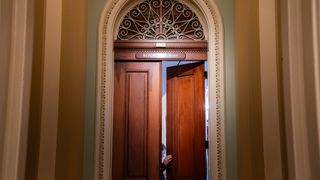Chaotic weeks in US politics like the one just past seem to only highlight how a lack of compromise between the Democrats and Republicans can interfere with the functioning of the US Government and the US role in the world. Just when the two sides had come together in the House (198-232) to avert a government shutdown, the fleeting moment of a ‘crisis averted’ formed the very basis for a new crisis – with the first ever successful motion to vacate, launched against House Speaker Kevin McCarthy by warring flanks of the Republican Party who felt betrayed by the speaker’s reach across the aisle.
It is often said that many Australians watch US domestic politics like television entertainment, feeling safe from the more acute, real-world effects of congressional brinkmanship on their day-to-day lives. Yet, polling from the United States Studies Centre in September 2022 suggests Australians see US politics as more than just entertainment and are in fact more attuned to the effects of US politics than that sentiment would imply. More than two in five Australians (43 per cent) said they were ‘very concerned’ about the lack of compromise between Democrats and Republicans in 2022, meanwhile, only 11 per cent said they were ‘not at all concerned’.
.png?rect=49,137,1999,1228&fp-x=0.511986301369863&fp-y=0.5501357521905467&w=320&h=197&fit=crop&crop=focalpoint&auto=format)
Had a shutdown materialised days ago because of the two parties’ inability to agree on how to fund their government, Australians undoubtedly would have soon felt the shutdown’s effects on the share market and their own economy. The latest episode is not the first instance where the lack of compromise between Democrats and Republicans in the 118th Congress has impacted US foreign policy. The risk of debt default and disagreements over the US debt ceiling in May this year prompted President Joe Biden to cancel his visit to Australia – the first presidential visit to Australia in over a decade – and postpone the Quad Leaders’ Summit set to be hosted in Sydney.
With the latest speakership battle, a future government shutdown and its resultant effects on the world’s economies remain a concern. None of the disagreements between the two parties have gone away, Congress has just bought itself more time to negotiate but now that finite time is being devoted to filling the vacant chair of the House speakership.
So, with the latest developments in US politics exposing further division and tumult on Congress, will this year’s polling numbers produce a different result? Will more Australians say they are very concerned about the lack of compromise between Democrats and Republicans? The latest United States Studies Centre polling addressing these issues and several more will be released at the USSC’s Sydney International Strategy Forum 1 November. Register here.
This article was originally published as part of the weekly USSC newsletter, the 46th. Subscribe here.






